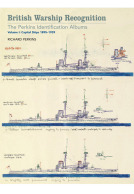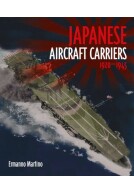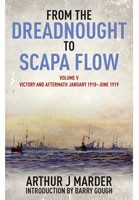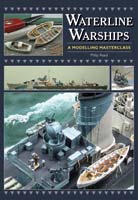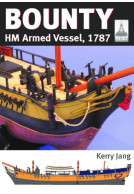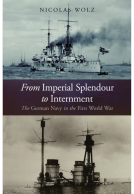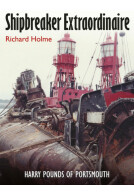British Warship Recognition: The Perkins Identification Albums, Volume III (Hardback)
Cruisers 1865-1939, Part 1

Series: Perkins Identification Albums
Pages: 192
ISBN: 9781473891456
Published: 31st January 2017
(click here for international delivery rates)
Order within the next 2 hours, 47 minutes to get your order processed the next working day!
Need a currency converter? Check XE.com for live rates
| Other formats available | Price |
|---|---|
| British Warship Recognition: The… eBook (74.3 MB) Add to Basket | £24.00 |
The Richard Perkins warship identification albums form one of the most detailed studies ever undertaken of the changes to the appearance of Royal Navy ships. However, it is a unique hand-drawn manuscript artefact in the care of the National Maritime Museum, so despite its value it is rarely seen by anyone besides the museum's curators, for whom it is a precious resource, used on an almost daily basis.
In collaboration with the Museum, Seaforth is undertaking the first publication of this monumental work in a superbly produced multi-volume edition that captures all the qualities of the original. Every page is reproduced at full size, making the extensive hand-written annotation readable, while the fine-line drawings retain all the colours that Perkins used to denote appearance differences and alterations.
Following the Museum's binding arrangement, the third volume of the series is the first half of the coverage of all cruisers from the Amazon class corvettes of 1865 to the Belfast class of 1939; the second half constitutes Volume IV. Highlights of this first part include armoured cruisers, the so-called large light cruisers, and the cruisers of the inter-war period.
This is a publishing event of the utmost importance for every enthusiast and ship modeller, who for the first time will be able to own a copy of a unique and invaluable reference work.
A masterpiece of incalculable value without which today we could not have information on the countless British warships that sailed the seas.
Miniaturas JM
Read the full Spanish review here
This series of books is one that I would likely have passed over, had I not seen them at the bookstore where I work. I am so very glad I did come across them, because they are a brilliant example of the kind of content that can result from good partnerships between libraries, archives and publishers...
The Northern Mariner / Le marin du nord, XVIII, No. 2 (Spring 2018) – reviewed by Sam McLean Toronto, Ontario
... well worth a place of pride on any coffee table or bookshelf. I especially recommend these books for those who are interested in the Royal Navy 1870-1939, and anybody who enjoys studying the minutiae of warship design, fittings and decorations.
For some the high price will undoubtedly be a deterrent to purchase, but for photograph collectors, modellers, and anyone else interested in the development and appearance of Royal Navy warships during the period, the books are likely to be regarded as indispensable.
Warship annual, 2018 - reviewed by Stephen Dent
Another great addition to the Perkins collection and one I would recommend to enthusiasts of cruisers, those interested in warship development and those that love beautifully presented and well put together reference books.
Inside The Armour
Read the complete review here.
The Richard Perkins warship identification albums form one of the most detailed studies ever undertaken of the changes to the appearance of Royal Navy ships during 1865 - 1939. This unique, hand-drawn artefact resides in the care of the National Maritime Museum and, until it was decided to publish this monumental work, it was rarely seen by anyone besides the museum's curators.
Marine News
Readers will be delighted by the hundreds of beautifully delineated warship profile drawings arranged by class and type as well as the colour-coded alterations which show features unique to each ship.
This magnificent, very large format is worth every penny and I have no hesitation whatsoever in thoroughly recommending it to all warship enthusiasts.
NOTE: reviewed alongside volume IV
Thomo's Hole - reviewed by Ian Thompson
Both books are a wonderful addition to a naval book collection.
Click here to read the review in its entirety
Reading and studying; in almost equal measure, this collection of drawings shows very clearly how warships developed over 70 odd years. Seaforth have done a marvellous job in creating a great book: highly recommended.
Warship World, May/June 2017 - reviewed by PB
A well produced and substantial collection which is an invaluable reference work.
Mariner's Mirror
As in the earlier volumes, Perkins continued to illustrate ships’ appearances after they were withdrawn from front-line service and rebuilt for use as training ships or hulks. HMS FISGARD on page 97 is a typical example with a name that subsequently became familiar to many generations of artificer apprentices. If the cruisers, or even the hulked training ships, of this period are a source of interest for you, this book contains a fascinating amount of material which was gathered by the author as his life’s work before wartime security restrictions brought it to an end in 1939.
Australian Naval Institute, David Hobbs
It can fairly be described as unique and, if this is your area of interest, this book will fall into the essential category and I thoroughly recommend it.
Read the full review here.
The work is unique and, by virtue of its accuracy, authority, and the sheer volume of detail, fills a very important gap in British naval history. It well-deserves inspection.
NZ Crown Mines
The Seaforth imprint of Pen & Sword has a well-deserved reputation for producing fine studies of naval technology and action.
Firetrench
This new book is the third volume of the Perkins Identification Albums, Part one of the Cruiser album. The series is a quite unique production in conjunction with the British National Maritime Museum. A must for collectors, professional and serious enthusiasts, most highly recommended
Read the full review here.
A real gem for any enthusiast of an era when the Royal Navy did 'Rule the Waves' and if you examine period photos, an unrivalled reference.
Military Model Scene, Robin Buckland
Read the full review here.
This is the third of eight volumes of facsimiles of truly elegant water-coloured line drawings of British naval vessels from Victorian times to 1939.
Robert Griffiths, Seaweed
The RN built a lot of cruisers and Perkins had to split this part of his work over two volumes. This one covers the second half of cruiser development from 1877 to 1939, from the last steamers with full sailing rigs to HMSs Belfast and Edinburgh, and including cruisers of all classes plus HMSs Courageous and Glorious which are normally referred to as battle cruisers. Earlier cruisers from 1865 to the 1900s will appear in Vol.IV, I understand scheduled for publication this summer.
Volume I, covering battleships and battlecruisers, came out in April 2016; please see my review of 29th September at as all my enthusiastic encomia on that volume apply in full force to this one, as they did to volume II.
As with the other volumes in the series, this book is compiled from the hand drawn and paintsaking annotated Identification albums of Richard Perkins, a keen Naval historian, well known in research circles for his exhaustive interwar collection of Royal Navy warship negatives and for founding the Naval Photographic Club. The albums were (unsurprisingly) conceived to aid the identification of vessels from sightings and photographs and Mr Perkins further aids this by identifying vessels as well as providing a superb overview of the changes in design philosophy that occurred in cruiser design at the admiralty in this time frame. A great reference resource again present in large format (VERY large in this case ) and very will printed presented and bound. Recommended!
Ship Modeller, Chris Meddings
About Richard Perkins
RICHARD PERKINS originally produced what he called his ‘Historical Identification Book’ to help identify and date photos in his monumental collection, but its wider significance is highlighted in this edition by an Introduction by ANDREW CHOONG, a curator at the National Maritime Museum for whom the albums are an indispensible reference












